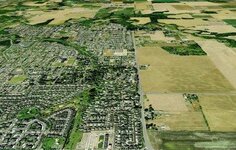- Messages
- 2,072
- Reactions
- 414
Thinking about neighbors.... really try to talk with the people who own property around you. Nice, friendly neighbors can make a world of difference in your experiences owning a piece of property. They'll keep an eye out to make sure nobody's messing around with it. They'll let you know if something's wrong. They'll sometimes chip-in to help maintain shared resources like roads. It's just nice being next to folks who wave and say "hi" when you're there.
On the other hand...if your neighbors are nasty, then look out. Maybe they'll trespass across your land. Maybe they'll do stuff to screw-up your property. Need a favor like temporary access across their land? No way. Have a view of something? Maybe they'll plant poplar trees to block your view (on purpose). Have an easement across their property? Well, good luck utilizing that. Are they meth cookers? Do they have teenagers/friends/whoever who might see your property as easy-pickins? The list goes on and on.
On the other hand...if your neighbors are nasty, then look out. Maybe they'll trespass across your land. Maybe they'll do stuff to screw-up your property. Need a favor like temporary access across their land? No way. Have a view of something? Maybe they'll plant poplar trees to block your view (on purpose). Have an easement across their property? Well, good luck utilizing that. Are they meth cookers? Do they have teenagers/friends/whoever who might see your property as easy-pickins? The list goes on and on.












